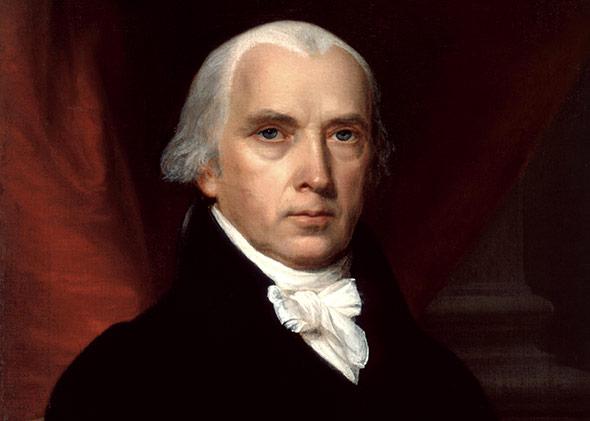U.S. District Court Judge Richard Leon criticized the National Security Agency’s metadata collection program on Monday in a lengthy ruling, declaring it “almost Orwellian” and “likely unconstitutional.” Leon concluded that, “Surely, such a program infringes on ‘that degree of privacy’ that the founders enshrined in the Fourth Amendment,” which prohibits unreasonable searches and seizures. The founders didn’t have telephones or email. What areas were included in their conception of privacy?
Definitely their homes, probably their saddlebags, and perhaps their carriages—it’s all speculation beyond that. Judge Leon’s ruling is typical of Fourth Amendment jurisprudence. He expresses certainty that the founders would recoil at the level of government intrusion at issue but produces scant evidence. In fact, our forefathers said very little about which locations the government should and shouldn’t be allowed to search. The only point of agreement among Fourth Amendment scholars is that the founders objected to warrantless and unreasonable home invasions. In the mid-18th century, officers of the British crown went house-to-house through entire towns looking for smallpox sufferers and impressing men into naval service. Nighttime visits, especially when officers entered without knocking, were particularly offensive to colonists and contributed to revolutionary sentiment.
There were stray complaints around the time of the nation’s founding about the inconvenience of personal searches. Connecticut physician Benjamin Gale, for example, wrote that British searches of travelers’ pockets and saddlebags undermined “the essential rights of a free state.” Although the Fourth Amendment specifically protects “persons” against “unreasonable searches and seizures,” there’s little evidence in the founders’ writings that they were particularly concerned about body searches in public places. The same goes for searches of vehicles. It was commonplace in the founding era, and therefore presumably constitutional, for government officials to search privately owned ships without a warrant. It’s not clear why the framers thought ships so clearly different from homes. The conventional wisdom refers to pragmatism: Unlike a home, a ship could sail away with contraband while officials sought a warrant. It’s also possible that the founders simply didn’t consider ships private places, with all of the salty sailors trudging around. We can’t say with certainty whether the legality of ship searches would have extended, in the minds of the framers, to carts, wagons, and modern-day automobiles, though.
There is virtually nothing to illuminate the framers’ thoughts on bulk collection of metadata. The Fourth Amendment mentions “papers,” but it doesn’t say whether that protection extends to papers that have left the home. The first clear indication that warrantless searches of sealed mail were unconstitutional didn’t come until the late 19th century, and that case had nothing to do with the modern phenomenon of metadata. (Readers looking for more discussion of the founders’ views of the Fourth Amendment should seek out William Cuddihy’s landmark study, The Fourth Amendment: Origins and Original Meaning 602–1791.)
There’s one historical data point that Judge Leon can rely on: the founders’ aversion to “general warrants” and “writs of assistance.” General warrants were issued for a purpose—such as looking for a suspect thought to be in the town—rather than a specific location, giving officials essentially unlimited invasion rights. Some general warrants explicitly authorized officers to break open doors and chests. Writs of assistance were even more general than general warrants, enabling a tax collector to search any home he pleased for untaxed goods. (Excise taxes were so broad in the late Colonial period that it was easy to find items in any home that had escaped the king’s collectors.) The writs were good for the life of the issuing monarch and even extended six months after his death. For some, the NSA’s data collection procedure looks something like a general warrant or a writ of assistance, as the government has given itself a blanket right to collect information without specific information about the individual targets.
Got a question about today’s news? Ask the Explainer.
Explainer thanks Tracey Maclin of Boston University School of Law.
